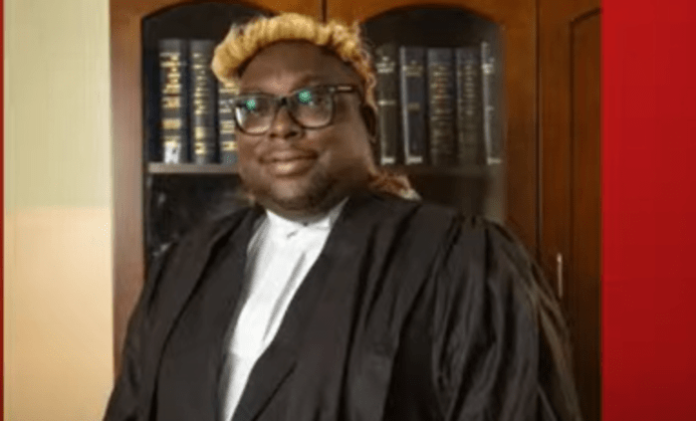Counsel for South Dayi MP, Nii Kpakpo Samoa Addo, has advised the Attorney-General, Godfred Yeboah Dame, to challenge the ruling of the Speaker of Parliament if he believes that his interpretation of what constitutes an interlocutory injunction is erroneous.
The Speaker, Alban Bagbin suspended the consideration of ministerial appointees on Wednesday, March 20 on the basis that the Member of Parliament for South Dayi, Rockson-Nelson Dafeamekpor, has filed an interlocutory injunction at the Supreme Court against the process.
But the Attorney-General disagreed with the Speaker. According to Godfred Yeboah Dame, Parliament is not restrained from proceeding with the vetting and approval process of the ministerial nominees since the action by the South Dayi MP did not explicitly constitute an interlocutory injection against the process.
Mr Dame has since written to the Speaker to point out his concerns with the ruling.
However, the lawyer for the South Dayi MP asserts that if the Attorney-General believes the Speaker’s directive was wrong, he should proceed to the court rather than merely putting his thoughts on paper.
Speaking on JoyFM’s Top Story on March 21, he argued that the best place to get a proper interpretation of matters was in the court.
“If the Speaker has made a ruling and you disagree with the ruling, what do you do? You can take it to court. That the Speaker made a ruling based on what ‘I consider to be an erroneous interpretation of a process that he has received.
“There is nothing preventing the Attorney-General from suing the Speaker or anybody else from suing the Speaker and saying that ‘Mr Speaker you received a writ on this day , the writ had an injunctive relief on it, so in our opinion, nothing stops you from proceeding even though you have received that writ. That is how you challenge a Speaker’s ruling.
“Challenge the Speaker’s ruling in court but if you write an opinion to the Speaker; well that is his right. I don’t know what the Speaker will do with that opinion,” he said.
Mr Addo argued that the Speaker, being a lawyer with many years of experience, might have suspended the approval of the ministerial appointees to avoid any contempt of the court.
“If being a party to the suit in the Supreme Court decided that based upon his receipt of a writ that had an injunctive relief on it, he was refraining himself from conducting himself in a manner that will be potentially infringing on the relief that the person was going to seek and potentially could put him in a contempt situation, what is wrong with that?” he quizzed.
ALSO READ:

